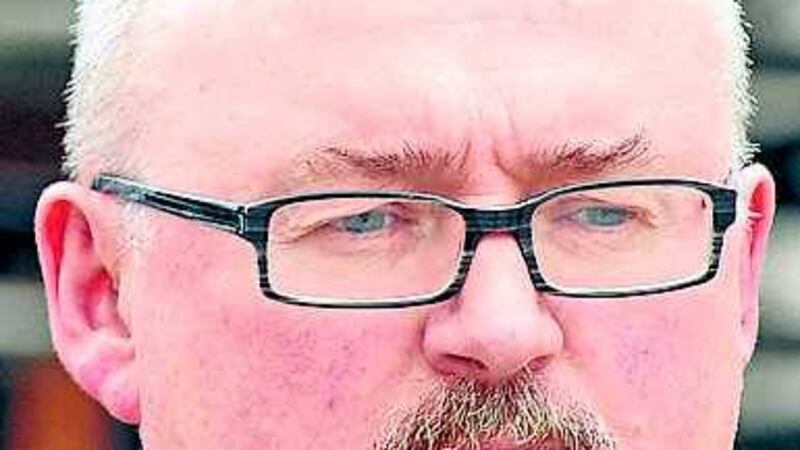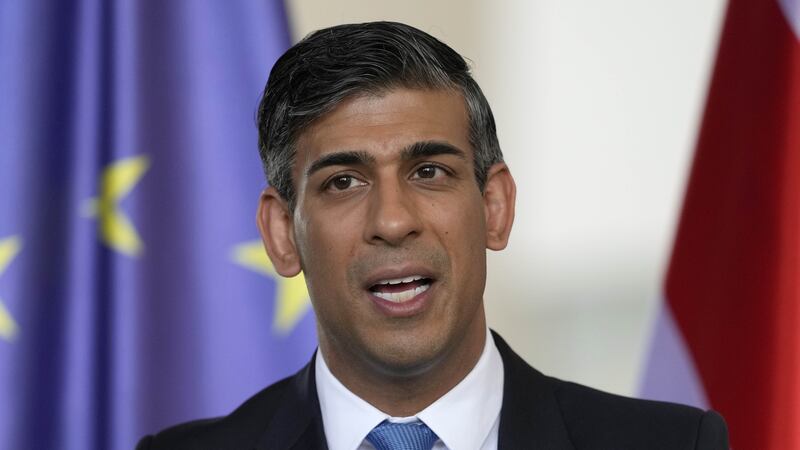A leading Queen's University academic who supported the establishment of the Boston College oral history project has said the recent political crisis arising from it is a result of "the law of unintended consequences."
Professor Paul Bew's comments follow the fallout from the arrest of Sinn Fein president Gerry adams in connection with murder of Jean McConville.
Mr Adams's detention for four days earlier this month is linked to a series of interviews given by veteran republicans to former IRA prisoner Anthony Mcintyre and journalist ed Moloney. Last year a US court ordered Boston College to hand over several of these interviews to PSNI officers investigating the Mrs McConville's murder.
Mr Adams denies any involvement in the 1972 murder. Although a supporter of the idea of a Troubles archive while working as a visiting professor at the Boston College Burns library in 1999-2000, Mr Bew was not involved in setting the subsequent project up.
Writing in the Sunday Independent yesterday Mr Bew revealed how he came to know Mr Mcintyre in the late 1980s.
He wrote: "With the IRA violence still going on, he opened a dialogue from prison with me on the subject of my recent book and Thomas Davis lecture given on RTE.
"Mcintyre sent detailed criticism of these works form a republican perspective which i did not accept but felt required a serious reply.
"Because Mcintyre was incarcerated at the time, the dialogue was carried out through intermediaries, one of whom is now prominent in the Sinn Fein leadership." In recent weeks Sinn Fein has accused some of those involved with the Boston College project as being opposed to the peace process.
Professor Bew offered a different perspective.
"I have to say it never occurred to me that Ed Moloney and Anthony Mcintyre were 'enemies of the peace process' though they were obviously critics of Gerry adams," he wrote.
"One of the most eloquent denunciations of the Omagh bomb was written by Anthony Mcintyre."
Prof Bew also spoke of the role of unionists in the good Friday agreement.
He wrote: "The most disturbing aspect of republican rhetoric last week was the failure to acknowledge that unionist partnership has been part of the process.
"That partnership was only avail able on the basis of the consent principle.
"In the mid 90s young republicans of my acquaintance all appeared to believe, on the basis of the testimony of Joe Cahill, that the ceasefire had been called because the British had given the 10-year signal for withdrawal.
"Mcintyre never believed that and it is obviously true today that he was right.
"But the fact that he was prepared to write and say it openly paradoxically strengthened the ability of unionists to make the necessary compromises embodied in the agreement."
Prof Bew believes that despite the claims of conspiracies from Sinn Fein the current crisis was not planned.
"As Gerry Adams probably knows better than anyone, the law of unintended consequences is one of the most powerful laws in politics.
"I never expected the same law to work so powerfully arising out of academic discussions in a beautiful library at the beginning of this century."
* ACADEMIC: Prof Paul Bew
* DIALOGUE Anthony McIntyre


